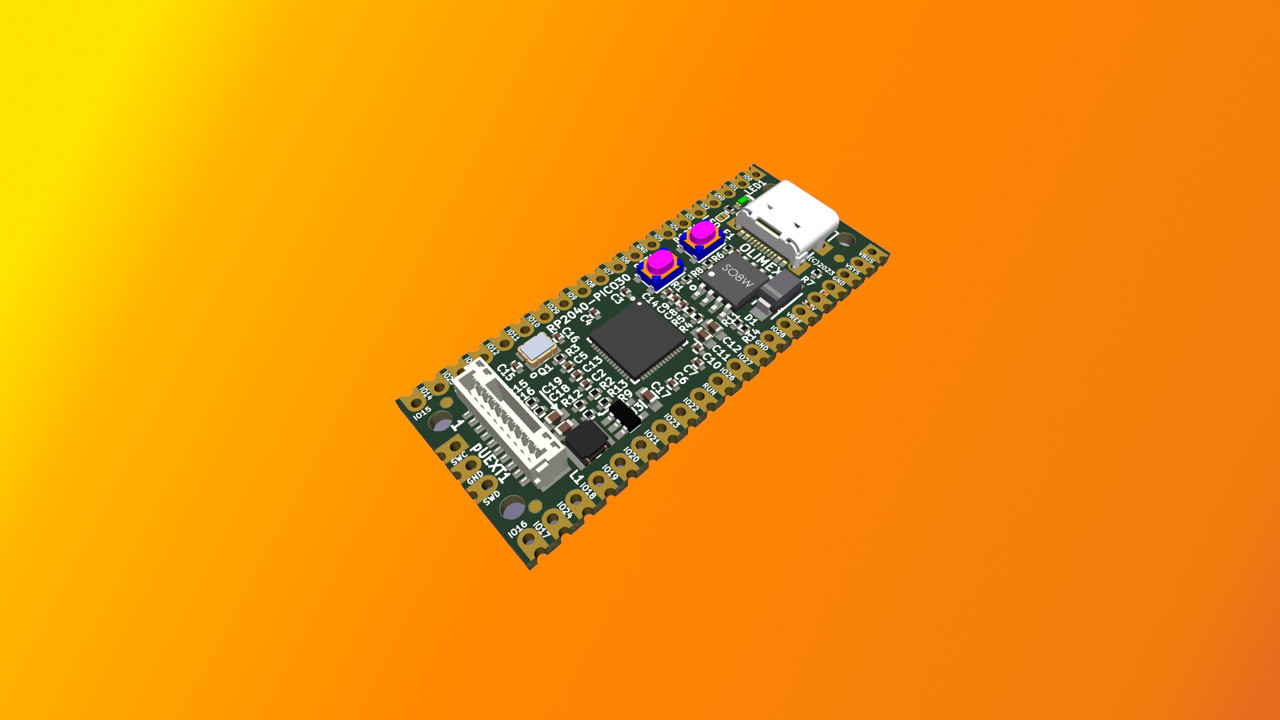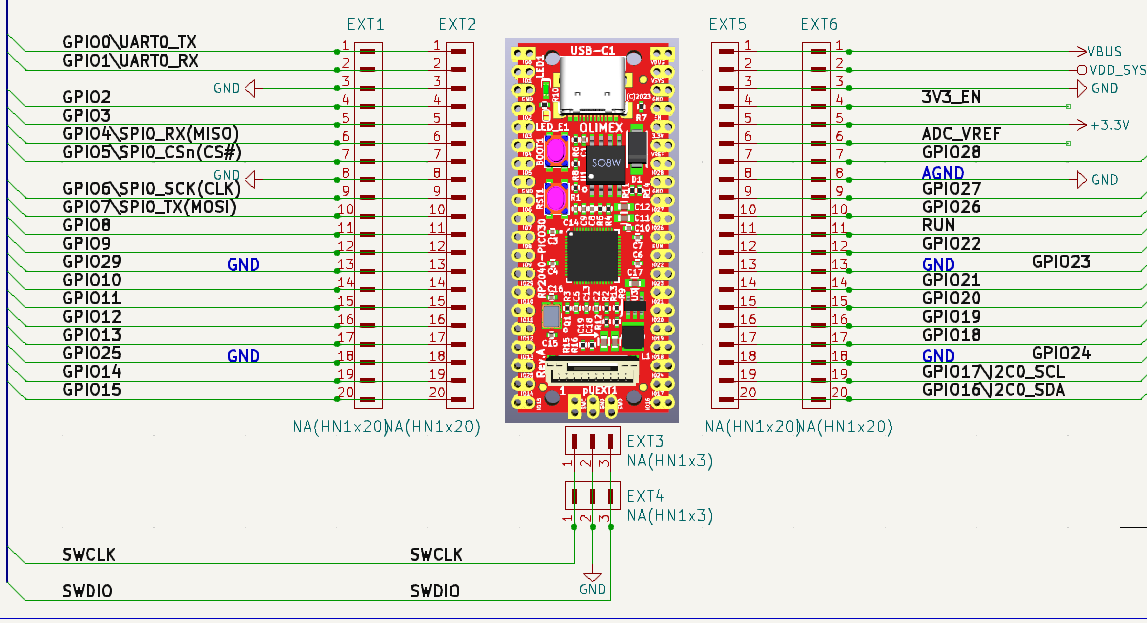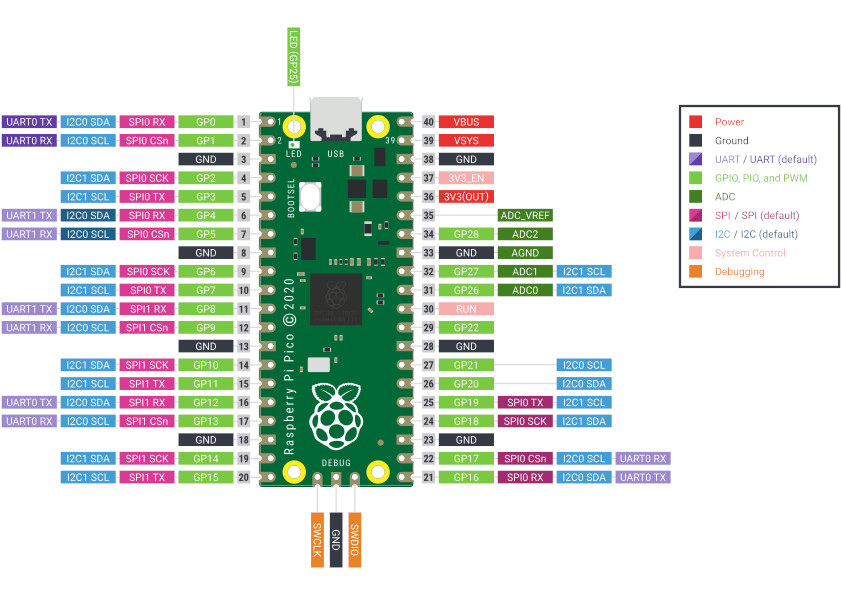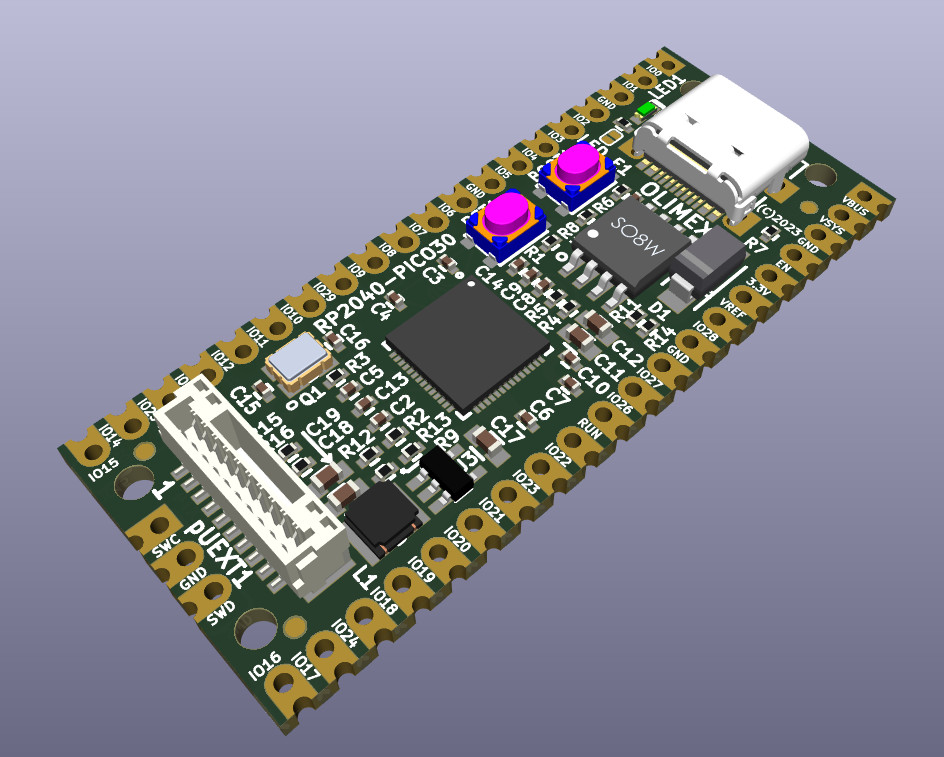Olimex Previews New Raspberry Pi Pico With Even More GPIO
Same pinout, more GPIO

Olimex, a provider of development tools and programmers for embedded devices has announced its next RP2040-based board, RP2040-PICO30. Announced by Olimex founder Tsvetan Usunov, the board brings even more GPIO pins while retaining the pinout of the Raspberry Pi Pico. The reason for its creation lies in a challenge to build a modern peripheral MOS 6502 CPU computer for the lowest possible cost.



The standard pinout for the Raspberry Pi Pico and Raspberry Pi Pico W has 26 GPIO pins, which can be controlled by the user. Four pins are reserved for controlling the power supply (GPIO23), USB detection (GPIO24), status LED (GPIO25) and monitoring the power supply (GPIO29). The pinout for the Raspberry Pi Pico has 40 pins in total, with the remaining 10 used for multiple GND connections, 3.3V, 5V and ADC voltage reference. The RP2040-PICO30 removes four GND connections in order to squeeze a few more GPIO pins into the pinout, while retaining general compatibility. A welcome addition to RP2040-PICO30 is a USB C connector for data and power. I prefer this over micro USB as it feels more robust, and I do not have to worry about correctly guessing the orientation. USB C also provides a power source that can provide up to 3A, and a SY8089A DC to DC voltage regulator will ensure that there is 3.3V at 3A.
The reason for the extra GPIO is for another Olimex project, the Neo6502. This project is an attempt to see "is it possible to build a modern peripheral 6502 computer that is with the lowest possible cost," according to Olimex founder Tsvetan Usunov. The Neo6502 is an attempt to merge the old and new into one package. The old is the MOS 6502 CPU, a popular CPU in the early days of 20th century home computer era. The new is the RP2040, which will emulate the RAM, programmable clock, video, USB host, storage and SID player. The Neo6502 project aims to bring all of this into a board that will cost around $25 to $30.
The RP2040-PICO30 is currently in the prototype stage, aiming for a late May 2023 release. There are two versions, a 2MB flash model for €4.50 / €6 with soldered headers, and a 16MB flash model for €6.50 / €8 with soldered headers.
Get Tom's Hardware's best news and in-depth reviews, straight to your inbox.

Les Pounder is an associate editor at Tom's Hardware. He is a creative technologist and for seven years has created projects to educate and inspire minds both young and old. He has worked with the Raspberry Pi Foundation to write and deliver their teacher training program "Picademy".